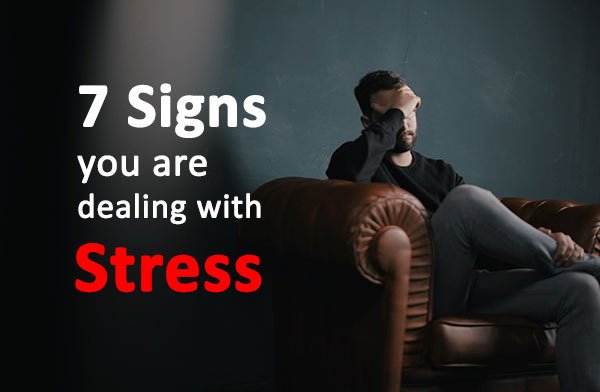Talk to a Psychologist for Online Counselling
Book Appointment Now 100% Private & Secure
Convenient, 100% anonymous, safe, certified professional counseling online.Have you ever felt that you’re being bullied or even abused in relationships? If your partner is around do you feel stressed and do you feel that your energy drains frequently? Do you feel overwhelmed or are you experiencing episodes of depression or anxiety? If so, your mental health is at risk absolutely in your relationship. It’s a high moment to think about taking this issue in a serious way.
A relationship that causes numerous other issues can be a danger to your mental well-being. There are many reasons to consider, however, it’s not possible to justify remaining in a relationship that poses an affront to one’s mental well-being. Healthy relationships don’t create negative feelings that impact your emotional and mental well-being. If there is a stake in the relationship, it’s time to make a decision about the relationship.


If you’re noticing these red flags in your relationship you may want to reconsider whether it’s a good and stable relationship for you. Red warning signs, in relation to relationships, can be described as indicators that suggest manipulative or unwholesome behavior. It’s possible for this behavior to seem innocent at first, but this is exactly why it’s extremely risky.
The presence of red flags in a relationship could be a sign you mental health is at risk. You must discuss with your partner these warning signs and try to settle the matter with them in an amicable way. You should also seek assistance as soon as you can. If the signs don’t change then you must think about leaving. These red flags could be an indication that you could be involved in a relationship with someone experiencing mental illnesses.
1. The signs of mental illness in the context of a relationship
The effects of mental illness on romantic relationships in a myriad of ways. For instance, a spouse may not be responsive to affection or love or show hypersexuality. In other situations, it could be that they don’t show an interest in sexual activity in any way. No matter reasons, it’s crucial to seek out a specialist diagnosis and the appropriate treatment. The best method to address the issue is to be open and open and honest.
Do not be afraid to seek help if believe your partner is suffering from mental illness. Actually, you should urge them to seek out a therapist, read up on the latest articles on mental health, or even join a group of friends. The most important thing is to be capable of trusting them and be able to respect their opinions.


2. The signs of infidelity
An indication of infidelity emotional is when your spouse seems to be focusing their attention away towards other people. It is possible to believe that they’re engaging in chat with the new person however, their behavior could be a red alert. They could spend hours in social media, or even texting others. They might lie to you about their relationship or change of their behaviour. If you observe any of these indicators it is possible to have an open discussion with your partner regarding the circumstances.
Another indicator that you are experiencing emotional infidelity could be the absence of communication. You might feel that your spouse doesn’t take care of your concerns, or you don’t feel valued by your spouse. It could be that you feel that you require the approval of somebody else or that you must offer something to the person in order to make him or feel valued. You might also be changing your schedule to fit other people’s schedules.


3. Narcissistic personality disorder symptoms
Narcissistic behaviors in relationships can include accusing you of being a narcissist and highlighting your weaknesses. A narcissistic personality disorder may result in a disorganized perception of reality and an inability to accept responsibility for their actions. Although these behavior patterns may start with a smile they may become more grave over time. Narcissists are not compassionate and do not see their partner’s points of view. This is why they treat their spouses like infants. They lack empathy which causes them to believe that they are always on the right side of things at every moment.


4. Fear and jealousy
A typical red flag is suspicion and jealousy. A lot of times, the red flag for an insecure partner appears to be a sign of attentiveness at the beginning of a relationship. However, there’s an underlying issue with control underneath all the focus. In the later stages of the relationship. It’s easy to look back and interpret the continuous attention or outright generousness as a desperate feeling of insecurity. They don’t realize the impact their actions have on other people, which is why they continually overstep boundaries.


5. The signs of substance abuse
If you suspect your spouse is using drugs to deal with mental health issues You should seek out assistance. Addiction to substances is usually associated with other issues, such as depression and suicidal ideas. It’s crucial to identify the warning signs of addiction early and seek the appropriate treatment.
The effects of drug abuse can be severe and impact your life. It can result in infections, blackouts, and other negative consequences. It also affects an individual’s ability to concentrate on family and social responsibilities. In the end, it could cause legal issues and problems with relationships.


6. There are signs of serious abuses
Your partner could engage in a dispute with you without no reason and may try to harm you physically. A hand raised, pushing you, thrashing you and hitting you with props, calling you names verbal abuse or using foul language, or threatening sexually or mentally are all examples of violence. These types of abuse can be an element of a red flag in a relationship. Any form of abuse is detrimental to the person. It is not a good idea to hide the fact and must report it. It is not acceptable to accept this in any way. If you start to detect these signs, it’s best for your safety to end the relationship, without causing more damage to yourself.
7. Controlling nature
One who is in control in any way is likely to have significant personal issues that they need to address. Think about the relationship you have with someone who attempts to dictate whom you meet, whom you speak to or with and the way you spend your finances, the things you spend your time doing online, what your body is like and what you eat or even the clothes you wear.


8. Gaslighting
Gaslighting occurs when someone is a person who says or does things that cause you to question your mental health. They may claim to be lying, say they’re not remembering things, deceive you about the past and accuse you of overreacting or employ other techniques to make you appear to be mentally unwell. The purpose of this kind of abuse is to control your emotions.
9. A lack of emotional intimacy
One of the greatest benefits that come with being in a relationship is being able to connect to a person in a genuine and meaningful way person. For certain people, intimacy with an emotional component is difficult, but it should be the primary goal. If a partner shows no interest in expressing their feelings and bonds is an end to the relationship.


10. Have relationship issues
The listing of indicators doesn’t cover all of them There are many more. In the end, it’s crucial for you to trust your instincts and stay clear of anyone who displays some or more warning indications. In some instances it may be logical to try to save your relationship, however should your partner show no indication of self-correction, it’s wise to move on. If you have trouble being unsure of what to do, talking with a counsellor can be helpful.
Counselling for relationships at OnlineCounselling4U
Are you struggling in your relationship? Contact our relationship specialist now. We have the most experienced team of psychologists, counsellors and relationship specialists that can help you navigate difficult times. You can count on them to talk about your issues with them. They’re non-judgmental, and they’re well-versed in their techniques. Call your counsellor now.


Call us to book a session today.
Contact us at +91 9811335150
Email us – info@onlinecounselling4u.com
Follow us on Facebook or Instagram
Talk to a Psychologist for Online Counselling
Book Appointment Now 100% Private & Secure
Convenient, 100% anonymous, safe, certified professional counseling online.

